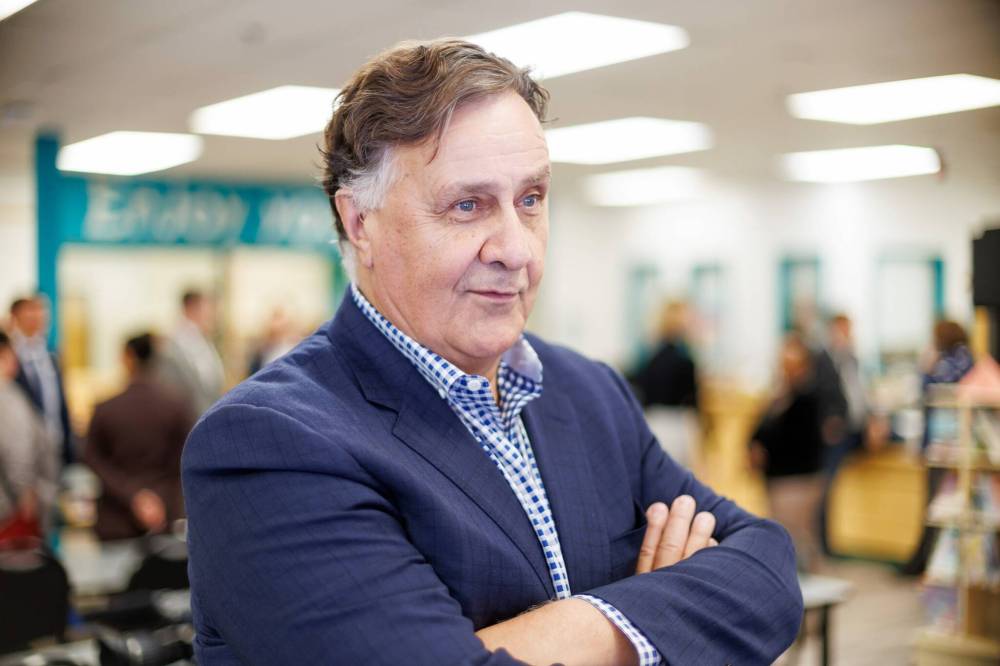The remainder of Manitoba’s $25-million fund for teacher-led initiatives to improve student mental health and academic outcomes is in limbo while the NDP conducts a review.
The Teachers’ Idea Fund began accepting applications in the spring of 2021.
At the time, teachers, school staff and other educational leaders could request up to $25,000 per one-year project.
The initiative was born out of a 2019 campaign promise made by the Progressive Conservatives under then-premier Brian Pallister. The PCs pledged to spend $25 million over five years.
“I would not have my program right now without it,” said Jennifer Tomanek, one of the inaugural recipients who won the highest lump sum available to launch a film program at Grant Park High School.
“(Ordering cameras and other equipment) was very exciting; it was like Christmas every time something was delivered to the school.”
Tomanek, who previously taught drama, is now delivering film courses full time because of the high demand for her elective.
“I would not have my program right now without it.”–Teach Jennifer Tomanek
While the $25,000 grant enabled her to purchase a “starting kit,” she said it did not come without its challenges.
Tomanek said there were numerous delays and she had to repeatedly advocate to track down the funding.
The Winnipeg teacher finally secured her winnings during the back-to-school season in 2022-23, more than a year after she was selected.
A total of 197 projects across 37 school divisions have been paid for through the program. A total of $13.2 million has been spent to date.
Many of the successful pitches in the most recent round focused on Indigenizing classrooms and student well-being.
They range from a motivational speaker series on mental health and resiliency in Flin Flon to an inclusive after-school program for students with disabilities in Hanover.
Deputy education minister Brian O’Leary informed stakeholders that the province would not be accepting new applications in January.
“Government is reviewing the program in view of newly established priorities like nutrition and lower class sizes,” O’Leary wrote in a memo.

MIKE DEAL / FREE PRESS FILES
Deputy education minister Brian O’Leary informed stakeholders that the province would not accept new applications in January.
A spokesperson for Manitoba Education confirmed the review was ongoing this week.
“I’m shocked that the review has taken this long, because I don’t understand what could be bad about getting innovative ideas directly from front-line teachers and providing funding to them,” said Tory education critic Grant Jackson.
The fund sought to reduce red tape and give teachers a direct line to government to pitch ideas, said Jackson, who represents Spruce Woods, adding there was never any shortage of applications for funding.
During the first round of submissions, which was overseen by his MLA predecessor and then-education minister Cliff Cullen, the province received more than 100 pitches.
The Manitoba Teachers’ Society has criticized the initiative since its inception.
“MTS welcomes any opportunity for teachers to explore new ideas and approaches that inspire learning. We just don’t want to see our members having to compete for grants to do that,” union president Nathan Martindale said in a statement.
Martindale noted the previous government never consulted the society on the subject.
The union would rather see the remaining dollars redirected to reduce class sizes and increase classroom supports, he added.
While noting a formal decision has not been made about the fund, the education minister’s press secretary said the NDP government has been giving schools “greater flexibility” with their funding since the 2023 election.
maggie.macintosh@freepress.mb.ca

Maggie Macintosh
Education reporter
Maggie Macintosh reports on education for the Free Press. Originally from Hamilton, Ont., Maggie was an intern at the Free Press twice while earning her degree at Ryerson’s School of Journalism (now Toronto Metropolitan University) before joining the newsroom as a reporter in 2019. Read more about Maggie.
Funding for the Free Press education reporter comes from the Government of Canada through the Local Journalism Initiative.
Every piece of reporting Maggie produces is reviewed by an editing team before it is posted online or published in print — part of the Free Press‘s tradition, since 1872, of producing reliable independent journalism. Read more about Free Press’s history and mandate, and learn how our newsroom operates.
Our newsroom depends on a growing audience of readers to power our journalism. If you are not a paid reader, please consider becoming a subscriber.
Our newsroom depends on its audience of readers to power our journalism. Thank you for your support.